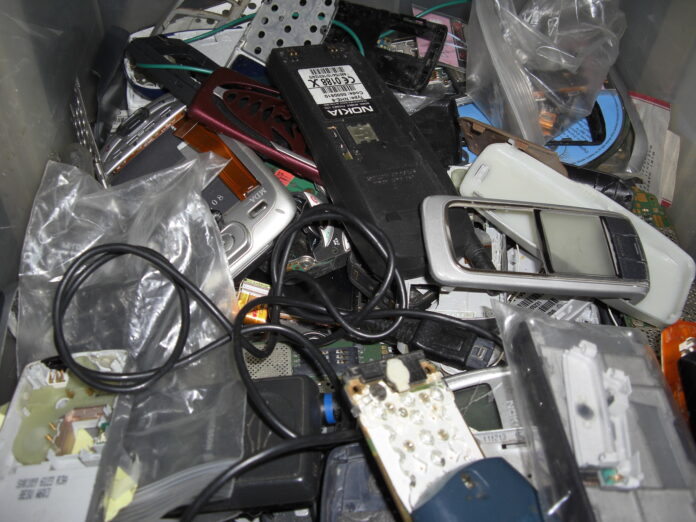
The World Health Organization reports that electronic waste is rapidly increasing. Of this, smartphones are a significant component, making them one of the largest contributors to e-waste.
The relentless demand for new smartphones means that millions of old devices end up discarded, contributing to a mounting pile of electronic waste. A report revealed that 5.3 billion phones in 2022 may have ended up in landfills.
With these shocking stats and escalating global concern, a group of researchers in Scotland is working on a new project to recycle e-waste. If successful, this could be a game-changing solution, promising a new life for obsolete smart devices!
In line with the authorities’ efforts to combat this escalating environmental problem, the team at Geonode explores this ongoing initiative in Scotland. Read below!
About the New Initiative for Recycling E-waste
The University of Aberdeen in Scotland is breaking new ground in the fight against e-waste with its innovative recycling project. With the generous £140,000 from the AXA Research Fund, the team has set its sights on the possible recycling process.
Powered by green solvents, the method in the development involves a flow electrochemical cell, engineered for optimal element extraction.
Precious Minerals from Your Smartphones
If successful, this technology could alleviate the worsening problems of e-waste. Experts predict that, by 2030, our world may witness an alarming surge in electronic waste, approximately 75 million metric tons annually. The Aberdeen project offers hope by directly addressing this bleak reality early on.
However, beyond this environmental concern, a more significant goal arose — to extract rare elements or critical earth components necessary for the manufacturing industry and other sectors. The aim is to separate these elements from those electricals efficiently, safely, and environmentally friendly.
Sharing his insights on the study and its motivation, project leader Dr. Haytham Hussein stated: “Our contemporary society relies heavily on rare and critical raw elements. These elements are indispensable in our homes, industries, and personal devices, but this reliance has led to an unsustainable surge in electronic and electrical waste.”
Unknown to many, phones on your hands contain precious minerals like cobalt, tungsten, and nickel. In other countries, they exploit nature only to get these raw materials. Worstly, it paves the way for child labour.
By fostering such recycling techniques, products like smartphones are broken down, and their valuable materials are recovered and reintegrated to solve a more critical problem. Thus, fostering urban mining initiatives that relieve our insatiable demand for raw materials, while mitigating child labour violations.
Looking Ahead!
Philipp Pratt, a recognized Innovation Expert at Geonode, said, “This is a revolution towards sustainable practices. As an expert, I can see an incredible potential in recycling and repurposing old smartphones and other electrical waste into an innovative solution.”
As we epitomise the potential of this game-changing project, let us be hopeful that soon, your retired smartphone might breathe new life. It’s not only as e-waste but as a harbinger of a greener, more equitable future.
It’s a win-win situation: we reduce the environmental damage caused by new extraction and lessen our reliance on finite natural resources while contributing to the supply of essential materials for homes and manufacturing.
Credit https://geonode.com/
Help keep news FREE for our readers
Supporting your local community newspaper/online news outlet is crucial now more than ever. If you believe in independent journalism, then consider making a valuable contribution by making a one-time or monthly donation. We operate in rural areas where providing unbiased news can be challenging. Read More About Supporting The West Wales Chronicle






















